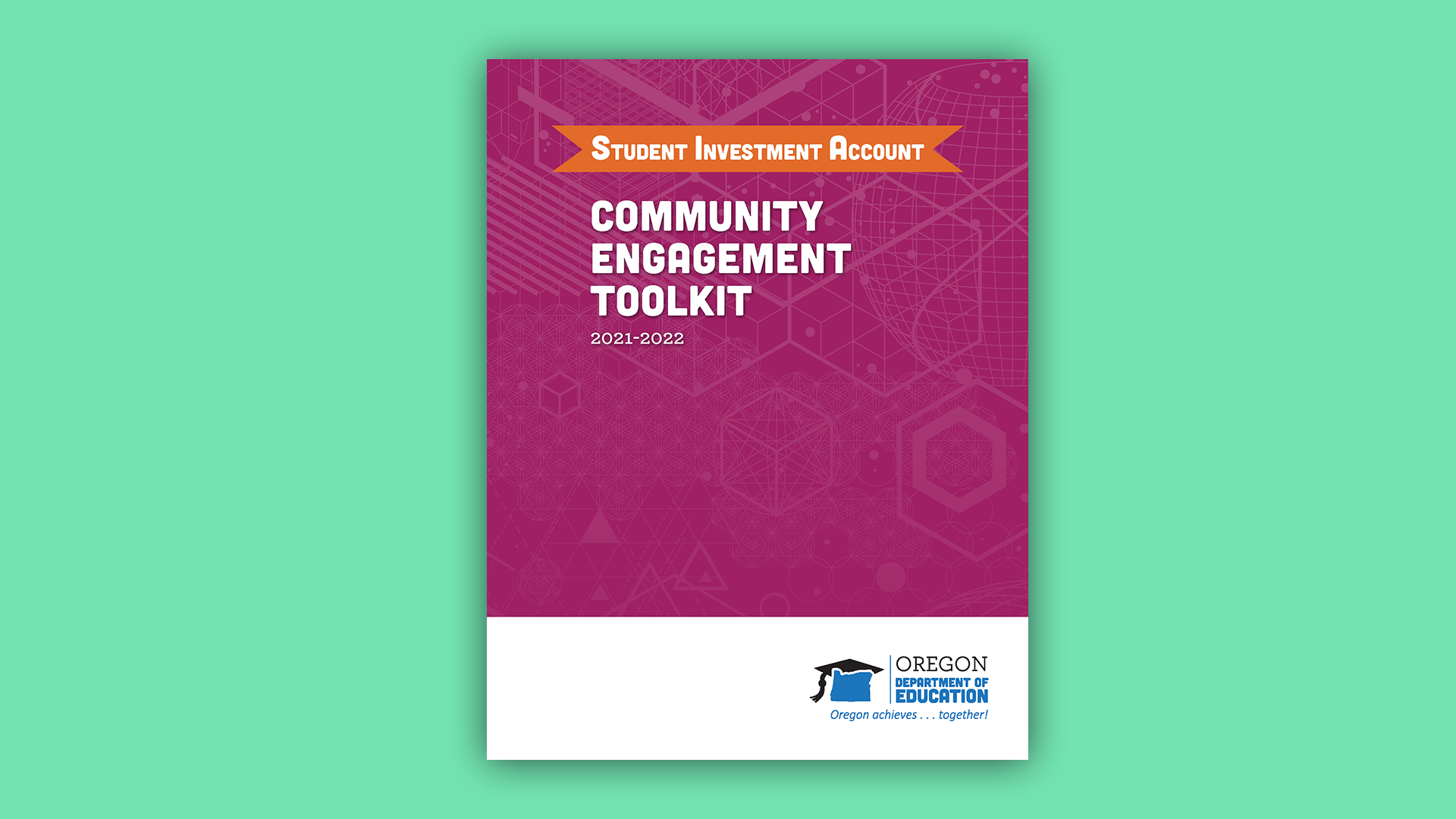How a Spectrum of Community Engagement Can "Invite Change to Happen"
A new toolkit from the Oregon Department Education will guide schools toward more inclusive and participatory decision-making.

04/29/21 ∞ MIN READ
Louis Wheatley is Strategic Communications Director at Foundations for a Better Oregon.
Louis Wheatley is Strategic Communications Director at Foundations for a Better Oregon.
The Oregon Department of Education has released a powerful new toolkit to help school districts deepen engagement with their communities, focus on the experiences of historically underserved students, and “invite change to happen.”
The new resource is designed to help districts design plans and investments funded by the Student Investment Account (SIA), a core component of the Student Success Act. To receive SIA funds, school districts must engage students, families, and their communities as they design plans and budgets that address disparities experienced by historically underserved students. This toolkit will guide ODE’s coaching and approach to community engagement over the coming years, and guide our education system toward more inclusive and participatory decision-making at the local level.
We spoke with Scott Nine, Assistant Superintendent for ODE’s Office of Education Innovation and Improvement, about the new toolkit and why community engagement matters.
How does robust community engagement help families, communities, and schools come into healthy relationship with each other?
Moving towards robust engagement means moving towards practices that earn trust and grow a shared sense of responsibility for what happens inside and outside school buildings. Schools are powerful public spaces where children and adults have the opportunity to cultivate the conditions we want for healthy communities. Engagement starts with invitations and relationships, and it creates a culture of belonging that builds the skill to disagree and sort through priorities. This new toolkit provides a framework to help schools and districts grow their skill in this work while providing students, families, and communities ways to think about the spectrum of engagement over time.
The toolkit introduces five levels of community engagement: inform, consult, involve, collaborate, and defer. What advice do you have for school leaders hoping to move along the spectrum for deeper community engagement?
The spectrum is important because we'd like to see districts living more often on the more robust sides of that spectrum while also honoring that earning trust can come from simply not pretending that each engagement is the same. Sometimes it works well for everyone for the school to 'consult.' Sometimes the school would do well to create the conditions for the leadership levels that support and honor the level described in 'defer.' It takes deep and sustained commitment to authentically and meaningfully engage students, educators, and families in an ongoing way. And the Student Success Act calls that forward from every district in the state. The framework offers depth and makes that work tangible and operational.

Student Investment Account Community Engagement Toolkit
We're thrilled to welcome Louis Wheatley to our team as FBO/Chalkboard Project's Strategic Communications Director.
Community leaders exchange ideas and strategies to fulfill the vision of the Student Success Act.
We’re witnessing the value of Oregon's teachers and early learning providers, doctors and nurses, public servants, and so many more.
A joint letter calls on state leaders to "act with children our north star."
The work is not over until every child in Oregon knows that they belong.
Equity investments are a blueprint for building a more resilient, accountable, and just public education system.
Sign up for our newsletter to get the latest news, resources, and more from Foundations for a Better Oregon.